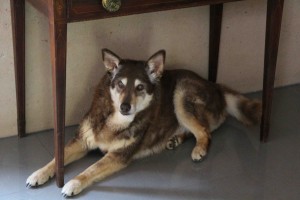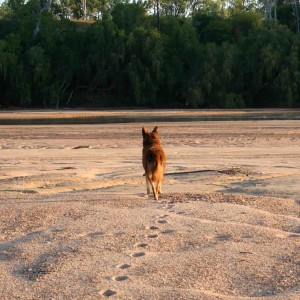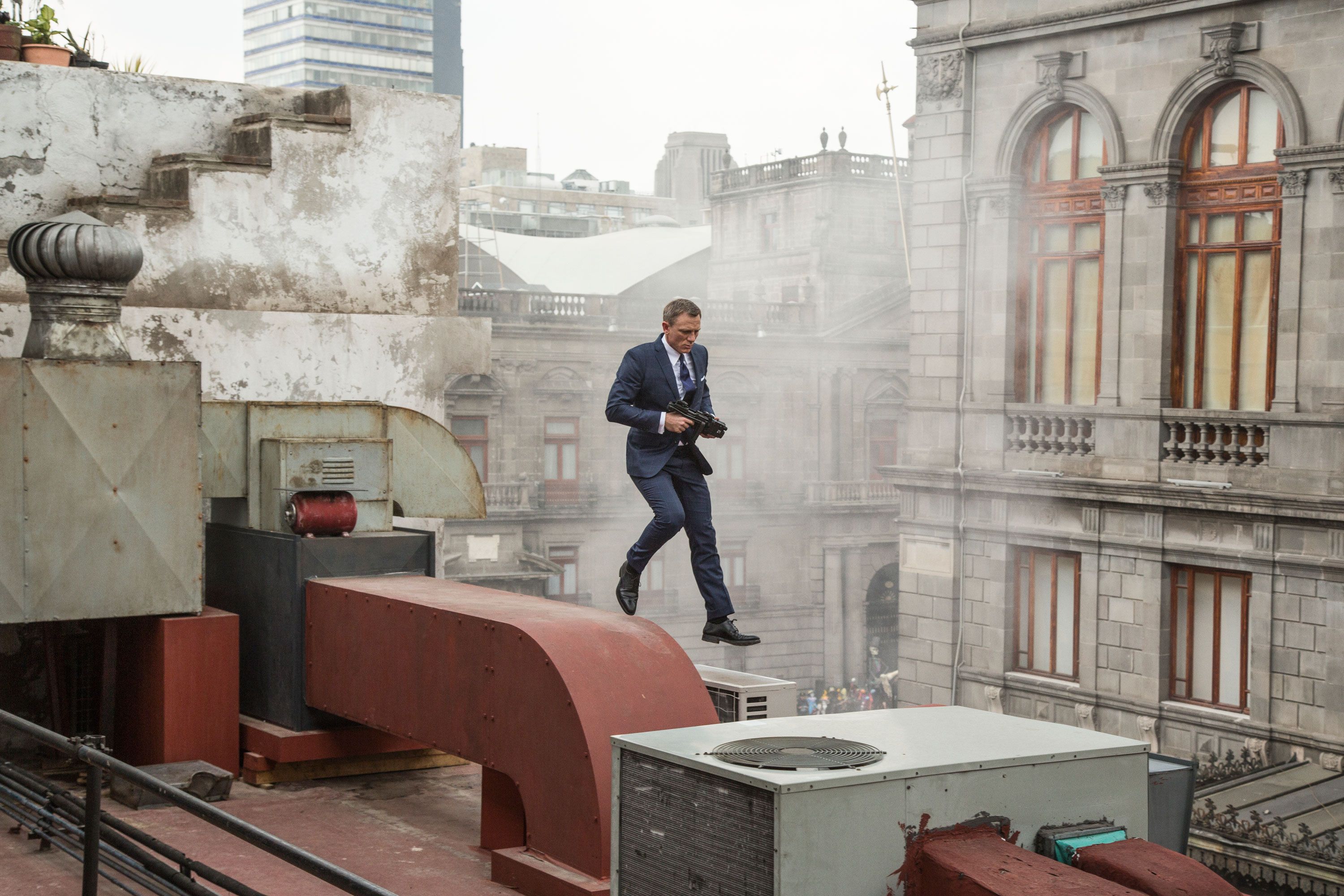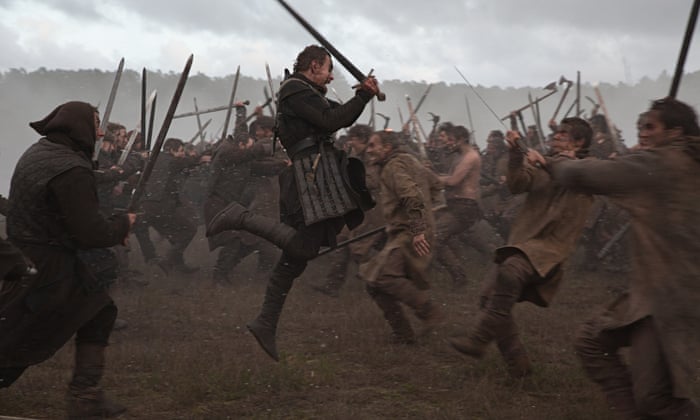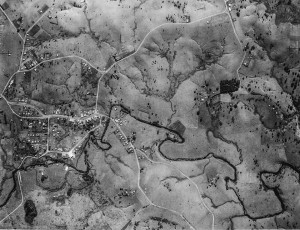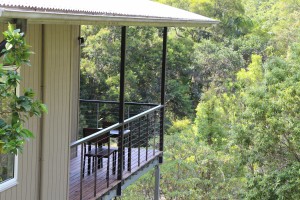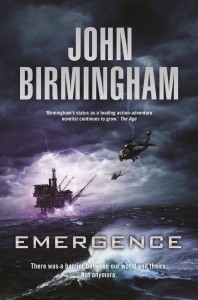In the most recent London Review of Books there’s an article by TJ Clark on the exhibition at the Tate Modern in London of Matisse's cut-outs entitled The Urge to Strangle, the title being a reference to the making of art, Matisse having said in later life something like ‘that in order to begin painting at all he needed to feel the urge to strangle someone, or to lance an abscess in his psyche.’In the article Clark writes,‘Crowds gather at the heart of [the exhibition] drawn to an artless home movie showing the master at work. He looks, and was, unwell. Not even a rakish straw hat, part cowboy part Maurice Chevalier, can divest the scene of its pathos. There is a spot of time in the movie, after Matisse has finished his fierce fast cutting of the usual vegetable-flower-seaweed-jellyfish shapes ... when the speed suddenly slackens and the old man holds the limp paper in his hands as if reluctant to let go. He fusses with it a little, prodding and twisting the fronds in space, maybe trying to thread the shapes together, buckling them, letting them be carried for a second as they might be by a breeze or coronet. He seems to be waiting for the cut-outs to occupy space - to make space ... I thought, looking at the film sequence that I could hear the paper shapes rustle. And the word – the imagined sound – sent me back to a wonderful essay by Roland Barthes called The Rustle of Language, and especially to its last two sentences:
"I imagine myself today something like the ancient Greek as Hegel describes him: he interrogated, Hegel says, passionately, uninterruptedly, the rustle of branches, of springs, of winds, in short, the shudder of Nature, in order to perceive in it the design of an intelligence. And I – it is the shudder of meaning I interrogate, listening to the rustle of language, that language which for me, modern man, is my Nature."’
 I was struck by this because it gives me a glimpse of an understanding of what people talk about when they talk about us being immersed in language, being made up of it. I know such an understanding should seem axiomatic to someone like myself, who writes, but it never really has.Interestingly enough I recently read something else which pertains to exactly this. There’s been a whole hullaballoo surrounding Karl Ove Knausgaard, the Norwegian writer of the six volume, My Struggle, which I’ve avoided dipping into for reasons that I’ve not analysed too closely – not wanting to be part of a fad as much as anything else I guess – but in the end I came across a copy of the first volume while wandering around the wonderful Foyle’s bookshop in London (on the same day as we saw the exhibition of Matisse as it happened, and, gosh, I wish I'd read the essay by TJ Clark before I saw it) and picked it up out of curiosity and found myself reading six pages right there in the store. I couldn't help but buy it. Unfortunately it became, in the end, my struggle, and I haven’t finished even this first volume. There are, however, amongst the tens of thousands of words of, quite possibly, unnecessary and irksome detail, some remarkable pieces of writing. I’m going to post one of them below. It’s five or six pages, so be warned, but I think it's worth it. And having read it maybe you can be excused reading the other 389 pages; or maybe it'll make you want to. I'm not sure it's possible to say whatever it is he's saying in less words than this, although TJ Clark hints at it. Anyway, here it is, pages 195-202 from A Death in the Family by Karl Ove Knausgaard, translated from the Norwegian by Don Bartlett."Twenty minutes later I was in my office. I hung my coat and scarf on the hook, put my shoes on the mat, made a cup of coffee, connected my computer and sat drinking coffee and looking at the title page until the screen saver kicked in and filled the screen with a myriad of bright dots.The America of the Soul. That was the title.And virtually everything in the room pointed to it, or to what it aroused in me. The reproduction of William Blake’s famous underwater-like Newton picture hanging on the wall behind me, the two framed drawings from Churchill’s eighteenth-century expedition next to it, purchased in London at some time, one of a dead whale, the other of a dissected beetle, both drawings showing several stages. A night mood by Peder Blake on the end wall, the green and the black in it. The Greenaway poster. The map of Mars I had found in an old National Geographic magazine. Beside it the two black and white photographs taken by Thomas Wagstron: one of a child’s gleaming dress, the other of a black lake beneath the surface of which you can discern the eyes of an otter. The little green metal dolphin and the little green metal helmet I had once bought on Crete and which now stood on the desk. And the books: Paracelsus, Basileios, Lucretius, Thomas Browne, Olof Rudbeck, Augustine, Thomas Aquinas, Albertus Seba, Werner Heisenberg, Raymond Russell and the Bible, of course, and works about national romanticism and about curiosity cabinets, Atlantis, Albrecht Durer and Max Ernst, the baroque and Gothic periods, nuclear physics and weapons of mass destruction, about forests and science in the sixteenth and seventeenth centuries. This wasn’t about knowledge, but about the aura knowledge exuded, the places it came from, which were almost all outside the world we lived in now, yet were still within the ambivalent space where all historical objects and ideas reside.In recent years the feeling that the world was small and that I grasped everything in it had grown stronger and stronger in me, and that despite my common sense telling me that actually the reverse was true: the world was boundless and unfathomable, the number of events infinite, the present time an open door that stood flapping in the wind of history. But that is not how it felt. It felt as if the world were known, fully explored and charted, that it could no longer move in unpredicted directions, that nothing new or surprising could happen. I understood myself, I understood my surroundings, I understood society around me, and if any phenomenon should appear mysterious I knew how to deal with it.Understanding must not be confused with knowledge for I knew next to nothing – but should there be, for example, skirmishes in the borderlands of an ex-Soviet republic somewhere in Asia, whose towns I had never heard of, with inhabitants alien in everything from dress and language to everyday life and religion, and it turned out that this conflict had deep historical roots that went back to events that took place a thousand years ago, my total ignorance and lack of knowledge would not prevent me from understanding what happened, for the mind has the capacity to deal with the most alien of thoughts. This applied to everything. If I saw an insect I hadn’t come across, I knew that someone must have seen it before and categorised it. If I saw a shiny object in the sky I knew that it was either a rare meteorological phenomenon or a plane of some kind, perhaps a weather balloon, and if it was important it would be in the newspaper the following day. If I had forgotten something that happened in my childhood it was probably due to repression; if I became really furious about something it was probably due to projection, and the fact that I always tried to please people I met had something to do with my father and my relationship with him. There is no one who does not understand their own world. Someone who understands very little, a child, for example, simply moves in a more restricted world than someone who understands a lot. However, an insight into the limits of understanding has always been part of understanding: the recognition that the world outside, all those things we don’t understand not only exists but is also always greater than the world inside. From time to time I thought that what had happened, at least to me, was that the children’s world, where everything was known, and where with regard to the things that were not known, you leaned on others, those who had knowledge and ability, that this children’s world had never actually ceased to exist, it had just expanded over all these years. When I, as a nineteen year old, was confronted with the contention that the world is linguistically structured, I rejected I with what I called sound common sense, for it was obviously meaningless, the pen I held, was that supposed to be language? The window gleaming in the sun? The yard beneath me with students crossing it dressed in their autumn clothes? The lecturer’s ears, his hands? The faint smell of earth and leaves on the clothes of the woman who had just come in the door and was now sitting next to me? The sound of pneumatic drills used by the road workers who had set up their tent on the other side of St Johannes Church, the regular drone of the transformer? The rumble from the town below – was that supposed to be a linguistic rumble? My cough, is it a linguistic cough? No, that was a ridiculous idea. The world was the world, which I touched and leaned on, breathed and spat in, ate and drank, bled and vomited. It was only many years later that I began to view this differently. In a book I read about art and anatomy Nietzsche was quoted as saying that ‘physics too is an interpretation of the world and an arrangement of the world, and not an explanation on the world,’ and that ‘we have measured the value of the world with categories that refer to a purely fabricated world.’A fabricated world?Yes, the world as a superstructure, the world as a spirit, weightless and abstract, of the same material with which thoughts are woven, and through which therefore they can move unhindered. A world that after 300 years of natural science is left without mysteries. Everything is explained, everything is understood, everything lies within humanity’s horizons of comprehension, from the biggest, the universe, whose oldest observable light, the furthest boundary of the cosmos, dates from its birth fifteen billion years ago, to the smallest, the protons and neutrons and mesons of the atom. Even the phenomena that kill us we know about and understand, such as the bacteria and viruses that invade our bodies, attack our cells and cause the to grow or die. For a long time it was only nature and its laws that were made abstract and transparent in this way, but now, in our iconoclastic times, this not only applies to nature’s laws but also to its places and people. the whole of the physical world has been elevated to this sphere, everything has been incorporated into the immense imaginary realm from South American rain forests and the islands of the Pacific Ocean to the North African deserts and Eastern Europe’s tired, grey towns. Our minds are flooded with images of places we have never been, yet still know, people we have never met, yet still know and in accordance with which we, to a considerable extent, live our lives. The feeling this gives, that the world is small, tightly enclosed around itself, without opening to anywhere else, is almost incestuous, and although I knew this to be deeply untrue, since actually we know nothing about anything, still I could not escape it. The longing I always felt, which some days was so great it could hardly be controlled, had its source here. It was partly to relieve this feeling that I wrote, I wanted to open the world by writing, for myself; at the same time this is also what made me fail. The feeling that the future does not exist, that it is only more of the same, means that all utopias are meaningless. Literature has always been related to utopia, so when the utopia loses meaning, so does literature. What I was trying to do, and perhaps what all writers try to do – what on earth do I know? – was to combat fiction with fiction. What I ought to do was affirm what existed, affirm the state of things as they are, in other words, revel in the world outside instead of searching for a way out, because like this I would undoubtedly have a better life, but I couldn’t do it, I couldn’t; something had congealed inside me, a conviction was rooted inside me, and although it was essentialist, that is outmoded and furthermore romantic, I could not get past it, for the simple reason that it had not only been thought but also experienced, in these sudden states of clear-sightedness that everyone must know, where for a few seconds you catch sight of another world from the one you were in only a moment earlier, where the world seems to step forward and show itself for a brief glimpse before reverting and leaving everything as before… The last time I experienced this was on a commuter train between Stockholm and Gnesta a few months earlier. The scene outside the window was a sea of whiteness, the sky was grey and damp, we were going through an industrial area, empty railway carriages, gas tanks, factories, everything was white and grey, and the sun was setting in the west, the red rays fading into the mist, and the train in which I was travelling was not one of the rickety old run-down units that usually serviced this route, but brand new, polished and shiny, the seat was new, it smelt new, the doors in front of me opened and closed without friction, and I wasn’t thinking about anything in particular, just staring at the burning red ball in the sky and the pleasure that suffused me was so sharp and came with such intensity that it was indistinguishable from pain. What I experienced seemed to me to be of enormous significance. Enormous significance. When the moment had passed the feeling of significance did not diminish, but all of a sudden it became hard to place: exactly what was significant? And why? A train, an industrial area, sun, mist?I recognised the feeling, it was akin to the one some works of art evoke in me. Rembrandt’s picture of himself as an old man in London’s National Gallery was such a picture, Turner’s picture of the sunset over the sea off a port of antiquity at the same museum. Caravaggio’s picture of Christ in Gethsemane. Vermeer evoked the same, a few of Claude’s paintings, some of Ruisdael’s and other Dutch landscape painters, some of JC Dahl’s, almost all of Hertervig’s… But none of Rubens’ paintings, none of Manet’s, none of the English or French eighteenth century painters, with the exception of Chardin, not Whistler, or Michelangelo, and only one by Leonardo da Vinci. The experience did not favour any particular epoch, nor any particular painter, since it could apply to a single picture by a painter and leave everything else the painter did to one side. Nor did it have anything to do with what is usually termed quality; I could stand unmoved in front of fifteen pictures by Monet, and feel the warmth spread through my body in front of a Finnish impressionist of whom few outside Finland had heard.I didn’t know what it was about these pictures that made such a great impression on me. However, it was striking that they were all painted before the 1900s, within the artistic paradigm that always retained some reference to visible reality, and it was doubtless in this interlying space where it ‘happened’, where it appeared, whatever it was I saw, when the world seemed to step forward from the world. When you didn’t just see the incomprehensible in it but came very close to it. Something that didn’t speak, and that no words could reach, consequently forever out of our reach, yet within it, for not only did it surround us, we were ourselves part of it, we were ourselves of it.The fact that things other and mysterious were relevant to us had led my thoughts to angels, those mystical creatures who not only were linked to the divine but also to humanness, and therefore expressed the duality of the nature of otherness better than any other figure. At the same time there was something deeply dissatisfying about both the paintings and angels, since they both belonged to the past in such a fundamental way, the part of the past we have put behind us, that is, which no longer fitted into this world we had created where the great, the divine, the solemn, the holy, the beautiful and the true were no longer valid entities but, quite the contrary, dubious or even laughable. This meant that the great beyond, which until the Age of Enlightenment had been the divine, brought to us through the Revelation, and which in romanticism was nature, where the concept of revelation was expressed as the sublime, no longer found any expression. In art that which was beyond was synonymous with society, by which is meant the human masses, which fully encompassed its concepts and ideas of validity. As far as Norwegian art is concerned, the break came with Munch; it was in his paintings that, for the first time, man took up all the space. Whereas man was subordinate to the divine through to the Age of Enlightenment, and to the landscape he was depicted in during romanticism – the mountains are vast and intense while humans, without exception, are small – the situation is reversed with Munch. It is as if humans swallow up everything, make everything theirs. The mountains, the sea, the trees and the forests, everything is coloured by humanness. Not human actions and external life, but human feelings and inner life. And once man had taken over, there seemed not to be a way back, as indeed there was no way back for Christianity as it began to spread rapidly across Europe in the first centuries of our era. Man is gestalted by Munch, his inner life is given an outer form, the world is shaken up, and what was left after the door had been opened was the world as a gestalt: with painters after Munch it is the colours themselves, the forms themselves, not what they represent, that carry the emotion. Here we are in a world of images where the expression itself is everything, which of course means that there is no longer any dynamism between the outer and the inner, just a division. In the modernist era the division between art and world was close to absolute, or put another way, art was a world of its own. What was taken up in this world was of course a question of individual taste, and soon this taste became the very core of art, which thus could and, to a certain degree in order to survive, had to admit objects from the real world, and the situation we have arrived at now whereby the props of art no longer have any significance, all the emphasis is placed on what the art expresses, in other words, not what it is but what it thinks, what ideas it carries, such that the last remnants of objectivity, the final remnants of something outside the human world have been abandoned. Art has come to be an unmade bed, a couple of photocopiers in a room, a motorbike in an attic. And art has come to be a spectator of itself, the way it reacts, what newspapers write about it, the artist is a performer. That is how it is. Art does not know a beyond, science does not know a beyond, religion does not know a beyond, not any more. Our world is enclosed around itself, enclosed around us, and there is no way out of it. Those in this situation who call for more intellectual depth, more spirituality, have understood nothing, for the problem is that the intellect has taken over everything. Everything has become intellect, even our bodies, they aren’t bodies any more, but ideas of bodies, something that is situated in our own heaven of images and conceptions within us and above us, where an increasingly large part of our lives is lived. The limits of that which cannot speak to us – the unfathomable – no longer exist. We understand everything, and we do so because we have turned everything into ourselves. Nowadays, as one might expect, all those who have occupied themselves with the neutral, the negative, the non-human in art, have turned to language, that is where the incomprehensible and the otherness have been sought, as if they were to be found on the margins of human expression, in other words, on the fringes of what we can understand, and of course actually that is logical: where else would it be found in a world that no longer acknowledges that there is a beyond?It is in this light we have to see the strangely ambiguous role death has assumed. On the one hand, it is all around us, we are inundated by news of deaths, pictures of dead people; for death, in that respect, there are no limits, it is massive, ubiquitous, inexhaustible. But this is death as an idea, death without a body, death as thought and image, death as an intellectual concept. This death is the same as the word ‘death’, the body-less entity referred to when a dead person’s name is used. For whereas, while the person is alive the name refers to the body, to where it resides, to what it does; the name becomes detached from the body when it dies and remains with the living, who, when they use the name, always mean the person he was, never the person he is now, a body which lies rotting somewhere. This aspect of death, that which belongs to the body and is concrete, physical and material, this death is hidden with such great care that it borders on a frenzy, and it works, just listen to how people who have been involuntary witnesses to fatal accidents or murders tend to express themselves. They always say the same, it was absolutely unreal, even though what they mean is the opposite. It was so real. But we no longer live in that reality. For us everything has been turned on its head, for us the real is unreal, the unreal real. And death, death is the last great beyond. That is why it has to be kept hidden. Because death might be beyond the term and beyond life, but it is not beyond the world."
I was struck by this because it gives me a glimpse of an understanding of what people talk about when they talk about us being immersed in language, being made up of it. I know such an understanding should seem axiomatic to someone like myself, who writes, but it never really has.Interestingly enough I recently read something else which pertains to exactly this. There’s been a whole hullaballoo surrounding Karl Ove Knausgaard, the Norwegian writer of the six volume, My Struggle, which I’ve avoided dipping into for reasons that I’ve not analysed too closely – not wanting to be part of a fad as much as anything else I guess – but in the end I came across a copy of the first volume while wandering around the wonderful Foyle’s bookshop in London (on the same day as we saw the exhibition of Matisse as it happened, and, gosh, I wish I'd read the essay by TJ Clark before I saw it) and picked it up out of curiosity and found myself reading six pages right there in the store. I couldn't help but buy it. Unfortunately it became, in the end, my struggle, and I haven’t finished even this first volume. There are, however, amongst the tens of thousands of words of, quite possibly, unnecessary and irksome detail, some remarkable pieces of writing. I’m going to post one of them below. It’s five or six pages, so be warned, but I think it's worth it. And having read it maybe you can be excused reading the other 389 pages; or maybe it'll make you want to. I'm not sure it's possible to say whatever it is he's saying in less words than this, although TJ Clark hints at it. Anyway, here it is, pages 195-202 from A Death in the Family by Karl Ove Knausgaard, translated from the Norwegian by Don Bartlett."Twenty minutes later I was in my office. I hung my coat and scarf on the hook, put my shoes on the mat, made a cup of coffee, connected my computer and sat drinking coffee and looking at the title page until the screen saver kicked in and filled the screen with a myriad of bright dots.The America of the Soul. That was the title.And virtually everything in the room pointed to it, or to what it aroused in me. The reproduction of William Blake’s famous underwater-like Newton picture hanging on the wall behind me, the two framed drawings from Churchill’s eighteenth-century expedition next to it, purchased in London at some time, one of a dead whale, the other of a dissected beetle, both drawings showing several stages. A night mood by Peder Blake on the end wall, the green and the black in it. The Greenaway poster. The map of Mars I had found in an old National Geographic magazine. Beside it the two black and white photographs taken by Thomas Wagstron: one of a child’s gleaming dress, the other of a black lake beneath the surface of which you can discern the eyes of an otter. The little green metal dolphin and the little green metal helmet I had once bought on Crete and which now stood on the desk. And the books: Paracelsus, Basileios, Lucretius, Thomas Browne, Olof Rudbeck, Augustine, Thomas Aquinas, Albertus Seba, Werner Heisenberg, Raymond Russell and the Bible, of course, and works about national romanticism and about curiosity cabinets, Atlantis, Albrecht Durer and Max Ernst, the baroque and Gothic periods, nuclear physics and weapons of mass destruction, about forests and science in the sixteenth and seventeenth centuries. This wasn’t about knowledge, but about the aura knowledge exuded, the places it came from, which were almost all outside the world we lived in now, yet were still within the ambivalent space where all historical objects and ideas reside.In recent years the feeling that the world was small and that I grasped everything in it had grown stronger and stronger in me, and that despite my common sense telling me that actually the reverse was true: the world was boundless and unfathomable, the number of events infinite, the present time an open door that stood flapping in the wind of history. But that is not how it felt. It felt as if the world were known, fully explored and charted, that it could no longer move in unpredicted directions, that nothing new or surprising could happen. I understood myself, I understood my surroundings, I understood society around me, and if any phenomenon should appear mysterious I knew how to deal with it.Understanding must not be confused with knowledge for I knew next to nothing – but should there be, for example, skirmishes in the borderlands of an ex-Soviet republic somewhere in Asia, whose towns I had never heard of, with inhabitants alien in everything from dress and language to everyday life and religion, and it turned out that this conflict had deep historical roots that went back to events that took place a thousand years ago, my total ignorance and lack of knowledge would not prevent me from understanding what happened, for the mind has the capacity to deal with the most alien of thoughts. This applied to everything. If I saw an insect I hadn’t come across, I knew that someone must have seen it before and categorised it. If I saw a shiny object in the sky I knew that it was either a rare meteorological phenomenon or a plane of some kind, perhaps a weather balloon, and if it was important it would be in the newspaper the following day. If I had forgotten something that happened in my childhood it was probably due to repression; if I became really furious about something it was probably due to projection, and the fact that I always tried to please people I met had something to do with my father and my relationship with him. There is no one who does not understand their own world. Someone who understands very little, a child, for example, simply moves in a more restricted world than someone who understands a lot. However, an insight into the limits of understanding has always been part of understanding: the recognition that the world outside, all those things we don’t understand not only exists but is also always greater than the world inside. From time to time I thought that what had happened, at least to me, was that the children’s world, where everything was known, and where with regard to the things that were not known, you leaned on others, those who had knowledge and ability, that this children’s world had never actually ceased to exist, it had just expanded over all these years. When I, as a nineteen year old, was confronted with the contention that the world is linguistically structured, I rejected I with what I called sound common sense, for it was obviously meaningless, the pen I held, was that supposed to be language? The window gleaming in the sun? The yard beneath me with students crossing it dressed in their autumn clothes? The lecturer’s ears, his hands? The faint smell of earth and leaves on the clothes of the woman who had just come in the door and was now sitting next to me? The sound of pneumatic drills used by the road workers who had set up their tent on the other side of St Johannes Church, the regular drone of the transformer? The rumble from the town below – was that supposed to be a linguistic rumble? My cough, is it a linguistic cough? No, that was a ridiculous idea. The world was the world, which I touched and leaned on, breathed and spat in, ate and drank, bled and vomited. It was only many years later that I began to view this differently. In a book I read about art and anatomy Nietzsche was quoted as saying that ‘physics too is an interpretation of the world and an arrangement of the world, and not an explanation on the world,’ and that ‘we have measured the value of the world with categories that refer to a purely fabricated world.’A fabricated world?Yes, the world as a superstructure, the world as a spirit, weightless and abstract, of the same material with which thoughts are woven, and through which therefore they can move unhindered. A world that after 300 years of natural science is left without mysteries. Everything is explained, everything is understood, everything lies within humanity’s horizons of comprehension, from the biggest, the universe, whose oldest observable light, the furthest boundary of the cosmos, dates from its birth fifteen billion years ago, to the smallest, the protons and neutrons and mesons of the atom. Even the phenomena that kill us we know about and understand, such as the bacteria and viruses that invade our bodies, attack our cells and cause the to grow or die. For a long time it was only nature and its laws that were made abstract and transparent in this way, but now, in our iconoclastic times, this not only applies to nature’s laws but also to its places and people. the whole of the physical world has been elevated to this sphere, everything has been incorporated into the immense imaginary realm from South American rain forests and the islands of the Pacific Ocean to the North African deserts and Eastern Europe’s tired, grey towns. Our minds are flooded with images of places we have never been, yet still know, people we have never met, yet still know and in accordance with which we, to a considerable extent, live our lives. The feeling this gives, that the world is small, tightly enclosed around itself, without opening to anywhere else, is almost incestuous, and although I knew this to be deeply untrue, since actually we know nothing about anything, still I could not escape it. The longing I always felt, which some days was so great it could hardly be controlled, had its source here. It was partly to relieve this feeling that I wrote, I wanted to open the world by writing, for myself; at the same time this is also what made me fail. The feeling that the future does not exist, that it is only more of the same, means that all utopias are meaningless. Literature has always been related to utopia, so when the utopia loses meaning, so does literature. What I was trying to do, and perhaps what all writers try to do – what on earth do I know? – was to combat fiction with fiction. What I ought to do was affirm what existed, affirm the state of things as they are, in other words, revel in the world outside instead of searching for a way out, because like this I would undoubtedly have a better life, but I couldn’t do it, I couldn’t; something had congealed inside me, a conviction was rooted inside me, and although it was essentialist, that is outmoded and furthermore romantic, I could not get past it, for the simple reason that it had not only been thought but also experienced, in these sudden states of clear-sightedness that everyone must know, where for a few seconds you catch sight of another world from the one you were in only a moment earlier, where the world seems to step forward and show itself for a brief glimpse before reverting and leaving everything as before… The last time I experienced this was on a commuter train between Stockholm and Gnesta a few months earlier. The scene outside the window was a sea of whiteness, the sky was grey and damp, we were going through an industrial area, empty railway carriages, gas tanks, factories, everything was white and grey, and the sun was setting in the west, the red rays fading into the mist, and the train in which I was travelling was not one of the rickety old run-down units that usually serviced this route, but brand new, polished and shiny, the seat was new, it smelt new, the doors in front of me opened and closed without friction, and I wasn’t thinking about anything in particular, just staring at the burning red ball in the sky and the pleasure that suffused me was so sharp and came with such intensity that it was indistinguishable from pain. What I experienced seemed to me to be of enormous significance. Enormous significance. When the moment had passed the feeling of significance did not diminish, but all of a sudden it became hard to place: exactly what was significant? And why? A train, an industrial area, sun, mist?I recognised the feeling, it was akin to the one some works of art evoke in me. Rembrandt’s picture of himself as an old man in London’s National Gallery was such a picture, Turner’s picture of the sunset over the sea off a port of antiquity at the same museum. Caravaggio’s picture of Christ in Gethsemane. Vermeer evoked the same, a few of Claude’s paintings, some of Ruisdael’s and other Dutch landscape painters, some of JC Dahl’s, almost all of Hertervig’s… But none of Rubens’ paintings, none of Manet’s, none of the English or French eighteenth century painters, with the exception of Chardin, not Whistler, or Michelangelo, and only one by Leonardo da Vinci. The experience did not favour any particular epoch, nor any particular painter, since it could apply to a single picture by a painter and leave everything else the painter did to one side. Nor did it have anything to do with what is usually termed quality; I could stand unmoved in front of fifteen pictures by Monet, and feel the warmth spread through my body in front of a Finnish impressionist of whom few outside Finland had heard.I didn’t know what it was about these pictures that made such a great impression on me. However, it was striking that they were all painted before the 1900s, within the artistic paradigm that always retained some reference to visible reality, and it was doubtless in this interlying space where it ‘happened’, where it appeared, whatever it was I saw, when the world seemed to step forward from the world. When you didn’t just see the incomprehensible in it but came very close to it. Something that didn’t speak, and that no words could reach, consequently forever out of our reach, yet within it, for not only did it surround us, we were ourselves part of it, we were ourselves of it.The fact that things other and mysterious were relevant to us had led my thoughts to angels, those mystical creatures who not only were linked to the divine but also to humanness, and therefore expressed the duality of the nature of otherness better than any other figure. At the same time there was something deeply dissatisfying about both the paintings and angels, since they both belonged to the past in such a fundamental way, the part of the past we have put behind us, that is, which no longer fitted into this world we had created where the great, the divine, the solemn, the holy, the beautiful and the true were no longer valid entities but, quite the contrary, dubious or even laughable. This meant that the great beyond, which until the Age of Enlightenment had been the divine, brought to us through the Revelation, and which in romanticism was nature, where the concept of revelation was expressed as the sublime, no longer found any expression. In art that which was beyond was synonymous with society, by which is meant the human masses, which fully encompassed its concepts and ideas of validity. As far as Norwegian art is concerned, the break came with Munch; it was in his paintings that, for the first time, man took up all the space. Whereas man was subordinate to the divine through to the Age of Enlightenment, and to the landscape he was depicted in during romanticism – the mountains are vast and intense while humans, without exception, are small – the situation is reversed with Munch. It is as if humans swallow up everything, make everything theirs. The mountains, the sea, the trees and the forests, everything is coloured by humanness. Not human actions and external life, but human feelings and inner life. And once man had taken over, there seemed not to be a way back, as indeed there was no way back for Christianity as it began to spread rapidly across Europe in the first centuries of our era. Man is gestalted by Munch, his inner life is given an outer form, the world is shaken up, and what was left after the door had been opened was the world as a gestalt: with painters after Munch it is the colours themselves, the forms themselves, not what they represent, that carry the emotion. Here we are in a world of images where the expression itself is everything, which of course means that there is no longer any dynamism between the outer and the inner, just a division. In the modernist era the division between art and world was close to absolute, or put another way, art was a world of its own. What was taken up in this world was of course a question of individual taste, and soon this taste became the very core of art, which thus could and, to a certain degree in order to survive, had to admit objects from the real world, and the situation we have arrived at now whereby the props of art no longer have any significance, all the emphasis is placed on what the art expresses, in other words, not what it is but what it thinks, what ideas it carries, such that the last remnants of objectivity, the final remnants of something outside the human world have been abandoned. Art has come to be an unmade bed, a couple of photocopiers in a room, a motorbike in an attic. And art has come to be a spectator of itself, the way it reacts, what newspapers write about it, the artist is a performer. That is how it is. Art does not know a beyond, science does not know a beyond, religion does not know a beyond, not any more. Our world is enclosed around itself, enclosed around us, and there is no way out of it. Those in this situation who call for more intellectual depth, more spirituality, have understood nothing, for the problem is that the intellect has taken over everything. Everything has become intellect, even our bodies, they aren’t bodies any more, but ideas of bodies, something that is situated in our own heaven of images and conceptions within us and above us, where an increasingly large part of our lives is lived. The limits of that which cannot speak to us – the unfathomable – no longer exist. We understand everything, and we do so because we have turned everything into ourselves. Nowadays, as one might expect, all those who have occupied themselves with the neutral, the negative, the non-human in art, have turned to language, that is where the incomprehensible and the otherness have been sought, as if they were to be found on the margins of human expression, in other words, on the fringes of what we can understand, and of course actually that is logical: where else would it be found in a world that no longer acknowledges that there is a beyond?It is in this light we have to see the strangely ambiguous role death has assumed. On the one hand, it is all around us, we are inundated by news of deaths, pictures of dead people; for death, in that respect, there are no limits, it is massive, ubiquitous, inexhaustible. But this is death as an idea, death without a body, death as thought and image, death as an intellectual concept. This death is the same as the word ‘death’, the body-less entity referred to when a dead person’s name is used. For whereas, while the person is alive the name refers to the body, to where it resides, to what it does; the name becomes detached from the body when it dies and remains with the living, who, when they use the name, always mean the person he was, never the person he is now, a body which lies rotting somewhere. This aspect of death, that which belongs to the body and is concrete, physical and material, this death is hidden with such great care that it borders on a frenzy, and it works, just listen to how people who have been involuntary witnesses to fatal accidents or murders tend to express themselves. They always say the same, it was absolutely unreal, even though what they mean is the opposite. It was so real. But we no longer live in that reality. For us everything has been turned on its head, for us the real is unreal, the unreal real. And death, death is the last great beyond. That is why it has to be kept hidden. Because death might be beyond the term and beyond life, but it is not beyond the world."







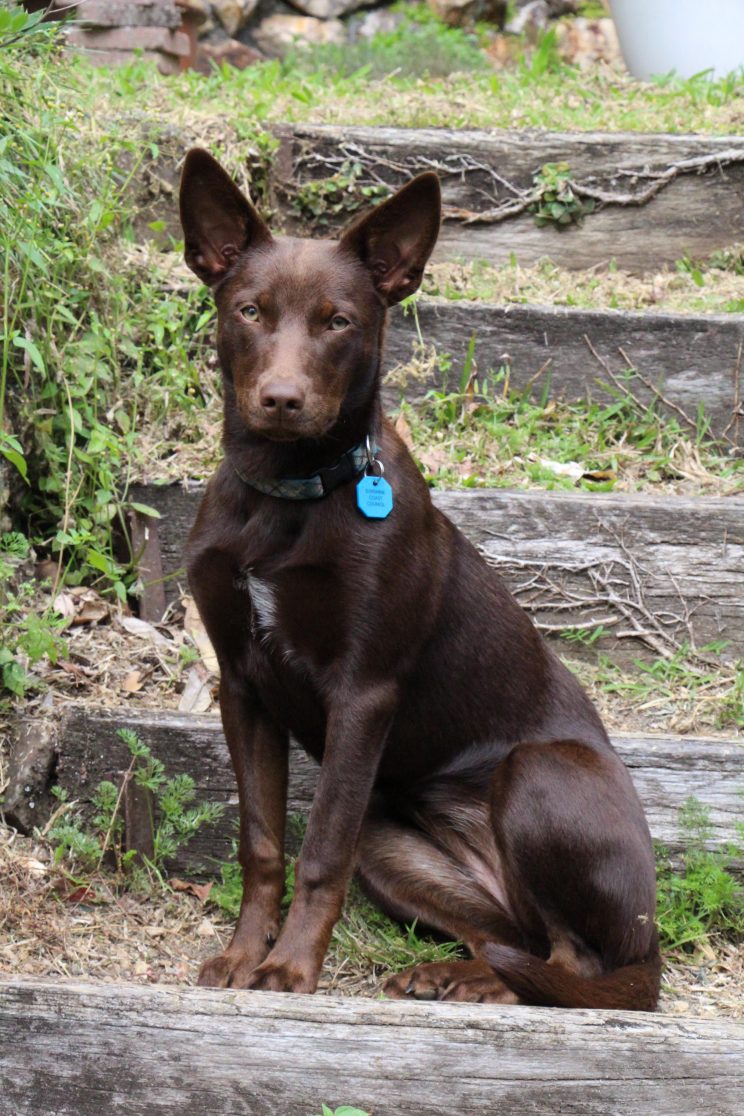

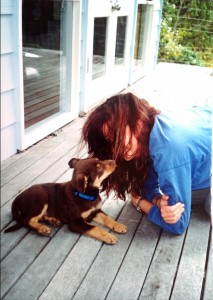
 Loved to ride in cars, for preference in the front seat, sitting up, watching what was going on. If the journey persisted he’d lie down, paws stretched over the handbrake and the gap between the seat, his head in your lap, the only sure time for genuine, unrequested affection. Grew up in a bookshop and got to be known about town. Capable of being sly when there was a chance of food, slipping out when the shop was full of customers to go and sit at the tables outside Monicas, his stomach pulled in, trying to show his ribs, his ears at full alert, watching the people eat.Never liked the lead, but would walk happily at heel for as long as you liked. The smartest thing on four legs, sired by one of Hopper’s dogs. Never trained to cows but knew instinctively how to round them up, push them along. Always conscious of his position in the pack and yet, once, when we had a frightened pup come to stay,
Loved to ride in cars, for preference in the front seat, sitting up, watching what was going on. If the journey persisted he’d lie down, paws stretched over the handbrake and the gap between the seat, his head in your lap, the only sure time for genuine, unrequested affection. Grew up in a bookshop and got to be known about town. Capable of being sly when there was a chance of food, slipping out when the shop was full of customers to go and sit at the tables outside Monicas, his stomach pulled in, trying to show his ribs, his ears at full alert, watching the people eat.Never liked the lead, but would walk happily at heel for as long as you liked. The smartest thing on four legs, sired by one of Hopper’s dogs. Never trained to cows but knew instinctively how to round them up, push them along. Always conscious of his position in the pack and yet, once, when we had a frightened pup come to stay, 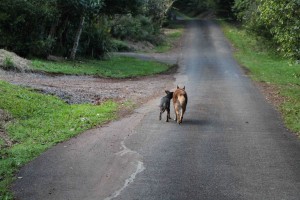 took the little thing completely under his control, showing it where to sleep, how to behave, even sharing his food, a side to him we’d never have believed possible, the two of them inseparable thereafter. The best dog. Rest in peace.
took the little thing completely under his control, showing it where to sleep, how to behave, even sharing his food, a side to him we’d never have believed possible, the two of them inseparable thereafter. The best dog. Rest in peace.